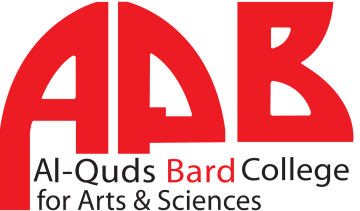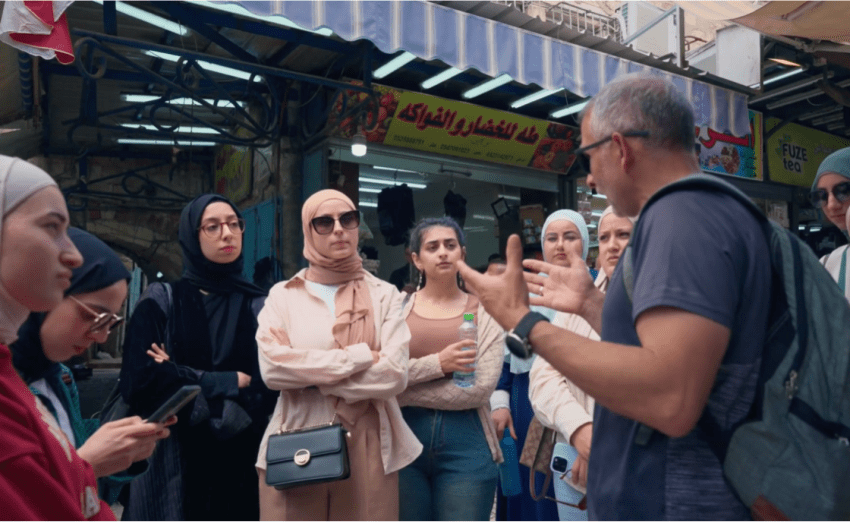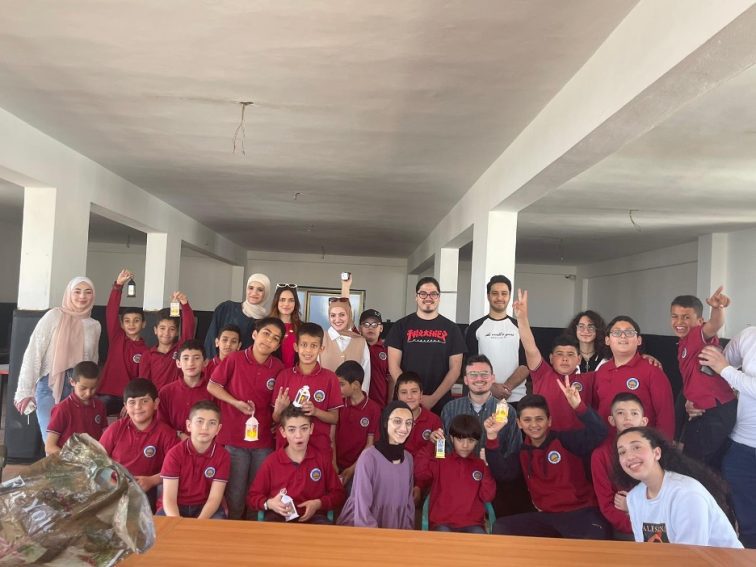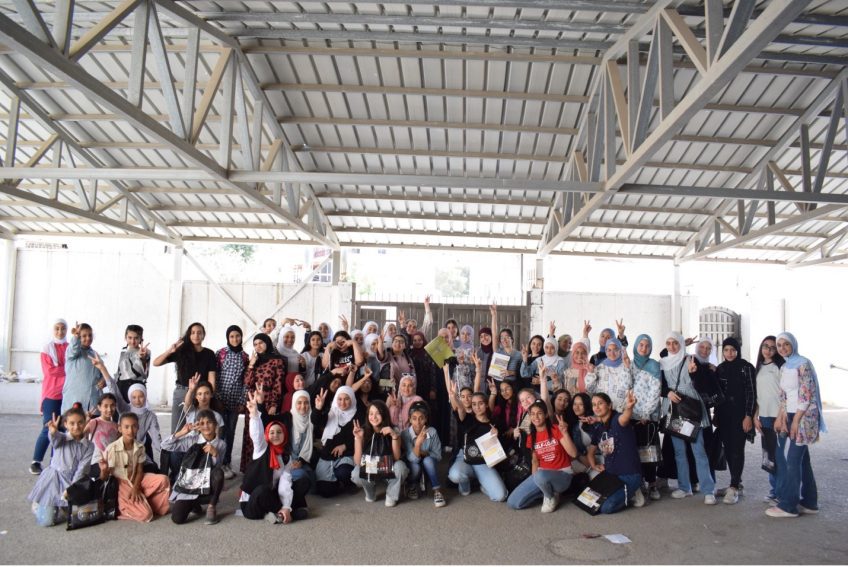Al-Quds Bard Civic Engagement Program

Al-Quds Bard is the First Place Winner of the MacJannet Prize for Global Citizenship. Al-Quds Bard College considers civic engagement a fundamental and inseparable part of a liberal arts education. The AQB Civic Engagement Program aims to increase the capacity of the College to operate in the public interest by supporting faculty and students to link classroom and community, and enabling students with the theory and skills to be civically engaged, to develop and organize projects to bring about meaningful and positive changes in society, and to and realize their full potential as community actors and educators in shaping their future, the future of Palestine, and the world.
“In a moment of unprecedented difficulty in Palestine, we at AQB are grateful to be honored by the Talloires Network with the MacJannet Prize for Global Citizenship. Over the years AQB has strived to encourage the deep, thoughtful, and passionate engagement of its students in Palestinian and Global society, and this award is an apt opportunity to express our heartfelt gratitude for the people who have played a crucial part in building the AQB Civic Engagement Program over the years: the students, alumni, fellows, faculty, staff, and community partners whose unwavering support has been indispensable in navigating a vast array of challenging circumstances. We are also honored to share this recognition with our founding partners: al-Quds University and Bard College, and give thanks for their continued dedication, support, and belief in the value of civic engagement.”
– AQB Civic Engagement Team
AQB was founded in 2009 in partnership between Al-Quds University and Bard College, both of whom consider civic engagement a core value, and when the College was founded, civic engagement was explicitly mentioned as an institutional tenet. The foundations for a program for civic engagement were developed between 2013, when the first student cohort from AQB attended the Open Society University Get Engaged Conference on Civic Engagement, and 2014, when the College hired the first Civic Engagement Fellow.
The program continued for a decade to be managed by newly graduated fellows from AQB and Bard who worked at the college for shifts of 1-2 years. During this time, the main goals of the program were to develop College-community activities and support students to develop clubs and student-led initiatives on campus.

In 2023 the College decided to hire a full-time civic engagement coordinator to further develop the program, which happened to coincide, shortly after, with the October 7 attacks and the subsequent war on Gaza. Because of rampant closures of Israeli military checkpoints and the violence of Israeli settlers, the University decided to conduct all classes online for the foreseeable future.
Despite the difficulty of the political developments in Palestine, the College was determined to maintain a lively Civic Engagement Program, and after several pilot activities, took steps to respond to the crisis by developing a Student Network for Civic Engagement, launched in February 2024 in coordination with the student leaders and the Steering Committee on Civic Engagement, as an online network to coordinate between in-person student work based in various regions and cities.
The program is located in the Student Affairs Division, led by a full-time Civic Engagement Coordinator in conjunction with a Steering Committee for Civic Engagement with faculty and staff, and a Student Committee on Civic Engagement.

The mission of the program is to foster the development of innovative, civically engaged, and action-oriented members of Palestinian and global society. The program’s specific goals are:
- To build a precise methodology for increasing student knowledge, skills, and experience in civic engagement, community action, and change-making.
- To enhance the ability of students and staff to link research and academic knowledge to communityknowledge and practical
- To move from sporadic and short-lived projects to long-term efforts and multi-year interventions with sophisticated approaches to change deeply rooted in communities and with a longstanding commitment to community work.
Al-Quds University is the only university in the world to be situated by a separation wall, and they work in a context of ceaseless colonial violence. The West Bank and East Jerusalem have been under Israeli military occupation for over 57 years, and despite international law, Israel treats all of historical Palestine as its own sovereign territory – seizing lands, intensively exploiting natural resources, introducing settlers, and implementing policies that fragment and isolate Palestinian communities, rupture social cohesion, and imprison the Palestinian economy. Learn more.
